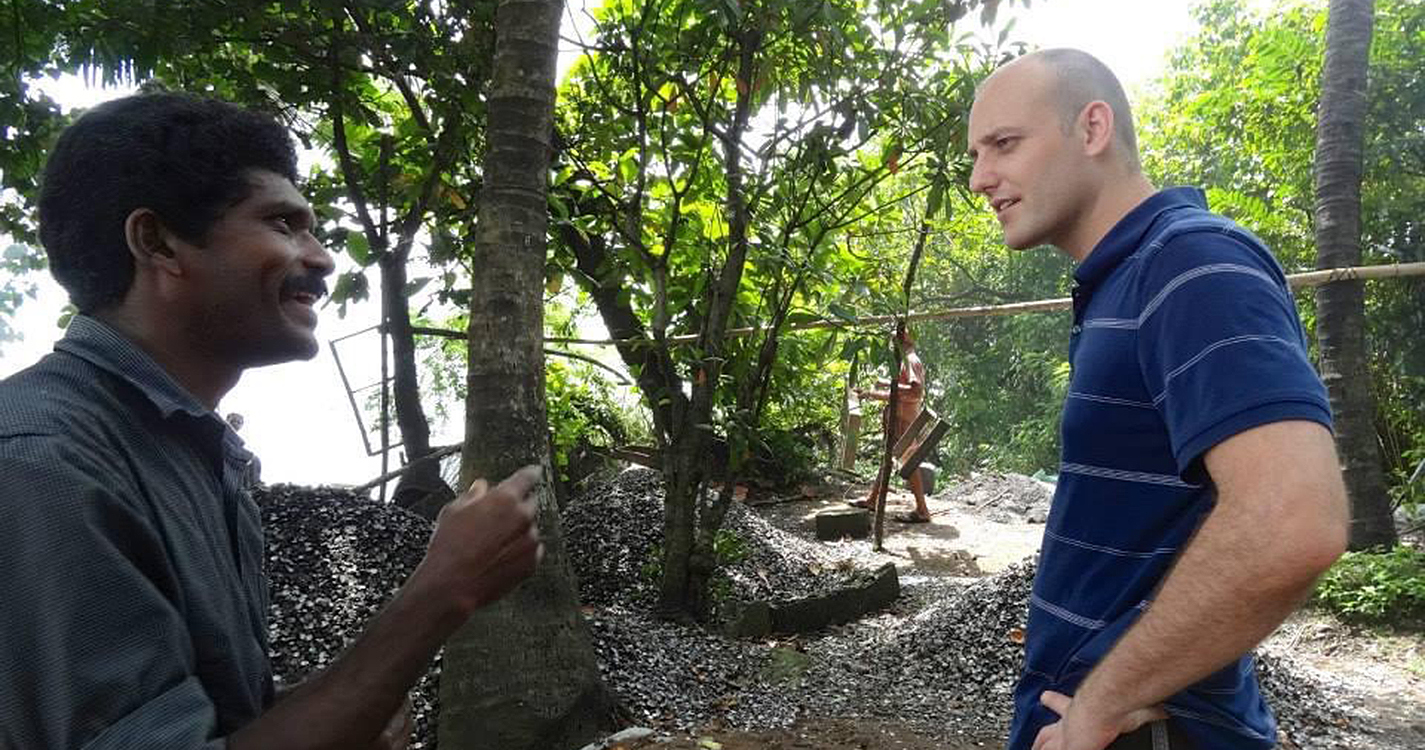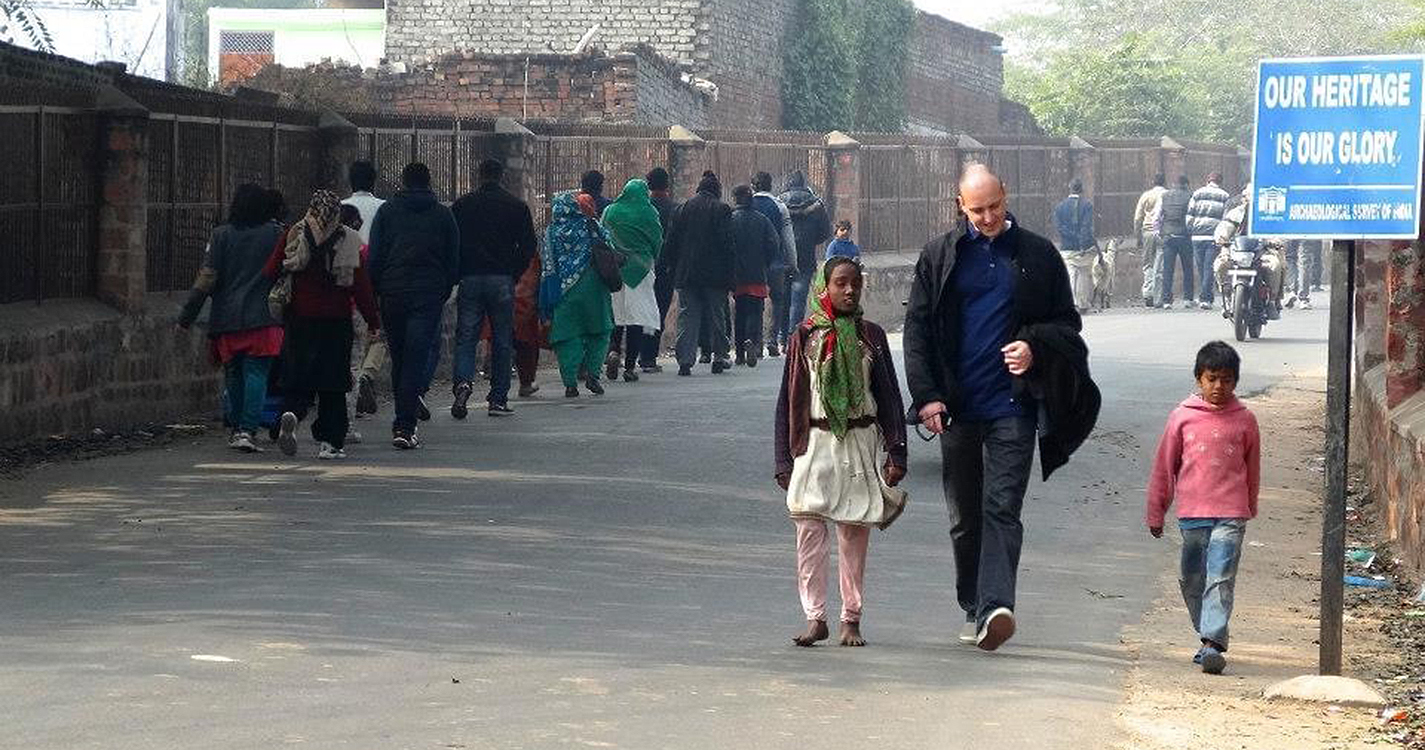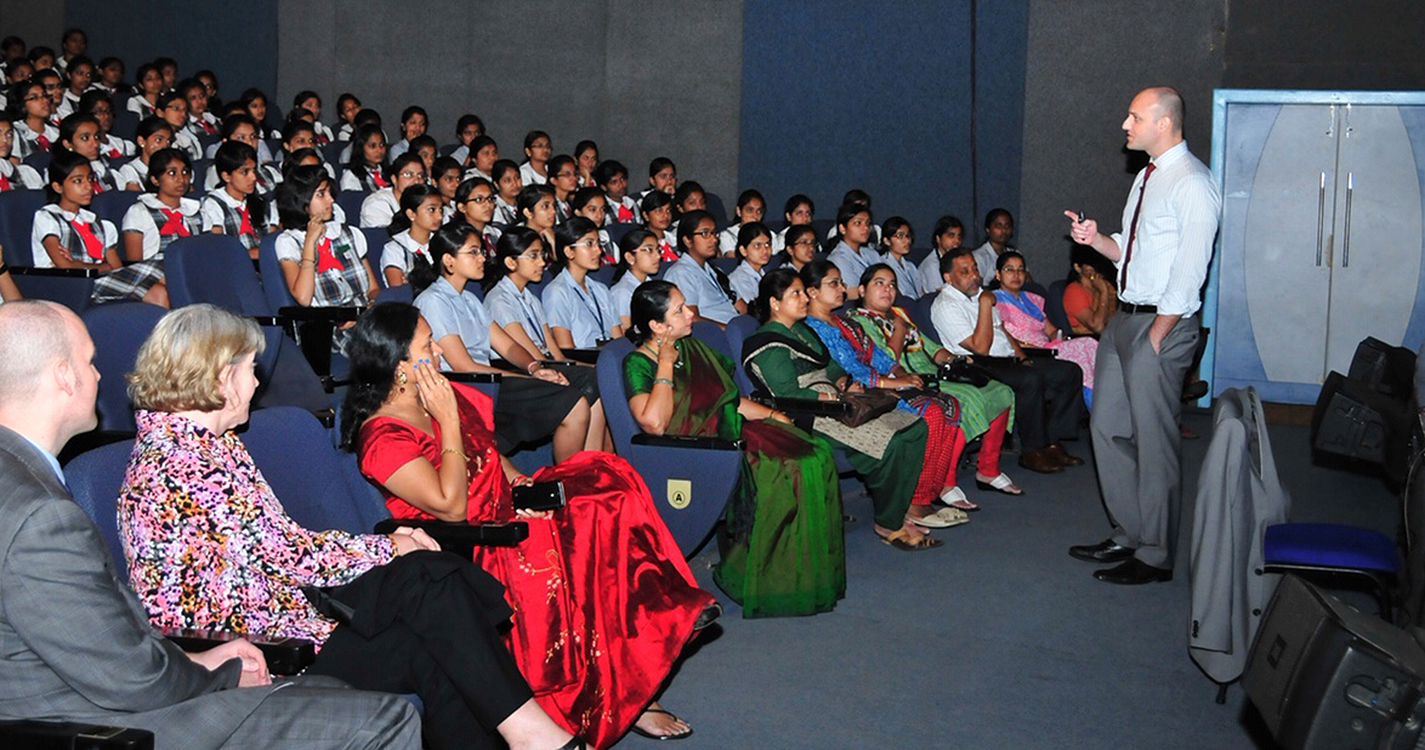Eric Swinn ’06 has uncovered fraud rings in Russia, worked on child abduction cases in the Middle East and assisted refugees in Europe. His career has been fast-paced and exciting — and it all started with his French degree.
A foreign service officer, Swinn became deputy chief of consular affairs at the U.S. Embassy in Brussels in 2020. His job as a U.S. diplomat has taken him far from his hometown of Roseburg, Oregon, but the first-generation alum said his rural background continues to play an important role in his success.
“Small town life prepares you to be humble and to take pride in your roots,” he said. “It’s very important to the foreign service to take your small portion of America with you as you engage with the world.”
Legacy of language
Opportunities for foreign travel and cultural connections were plentiful at Willamette, where Swinn’s decision to major in French and Russian set the course of his career.
French professors Gaetano DeLeonibus and Amadou Fofana taught him the power of the language in history and throughout the world, while Mark O. Hatfield Professor of Politics, Policy, Law and Ethics Richard Ellis introduced him to ancient Greece through Thucydides, Aeschylus and Aristophanes, exposing Swinn to universal themes so central to society and politics, he continues to reference them 17 years after graduation, he said.
“Willamette exposed me to the world in a lot of ways, and it helped me better understand how to apply a narrow part of my background — growing up in Roseburg — to something bigger, and helped me transition to my current career,” he said.
Swinn also tutored students at Tokyo International University of America for a few years and studied abroad in Ukraine, taking language classes during the Orange Revolution of 2004. It was there he saw how language could be used as a tool to deepen divisions in society, and the experience exposed him to the importance of politics and the role of language within the societal fabric of the former Soviet Union.
“I realized that engaging with the world face-to-face, in these different countries, was very important to me, and I wanted to do it professionally,” he said. “The foreign service offered ways to do that.”
Russia, John Kerry and the Kremlin
After Swinn graduated and spent a year in South Korea as a Fulbright scholar, he continued studying Russian and politics at the University of California Los Angeles and Georgetown University.
His background in Russian and Ukraine propelled the early stages of his career, first in the Office of Russian and Eurasian Affairs at the U.S. Department of Energy and later while working in the U.S. Embassy in Moscow. In Moscow, Swinn’s work in the visa section helped uncover rings of fraudulent and criminal Russian visa applicants and prevented their travel to the U.S. His most memorable moment? Facilitating a meeting between Secretary of State John Kerry and Russian President Vladimir Putin, which involved a run across Red Square and an inside view of Moscow, late at night from the doors of the Kremlin Palace, he said.
In 2017, Swinn worked as a refugee officer with the State Department’s Bureau of Population, Refugees and Migration. He used his French to work with U.N. agencies and nongovernmental organizations across Europe in support of U.S. humanitarian goals. Two years later, he worked closely with his Francophone counterparts across North Africa and the Middle East to return children abducted from the U.S. home again.
Swin has received many awards for his service, most recently for his work on a task force that coordinated the return of over 100,000 U.S. citizens from around the world in the early stages of the COVID-19 pandemic.
His career is a dynamic one. The foreign service offers him a chance to synthesize his knowledge of different countries and appreciation for other cultures. It’s the type of job that changes not only over the course of one assignment, but over many throughout a career, and the nature of the job can be challenging without a solid foundation, which Swinn finds in his rural Oregon roots.
“When you live abroad, you are constantly starting anew,” he said. “It’s really important that you have something to ground you. For me, it’s my connection to Oregon — I see its trees, its river, its mountains wherever I am.”




